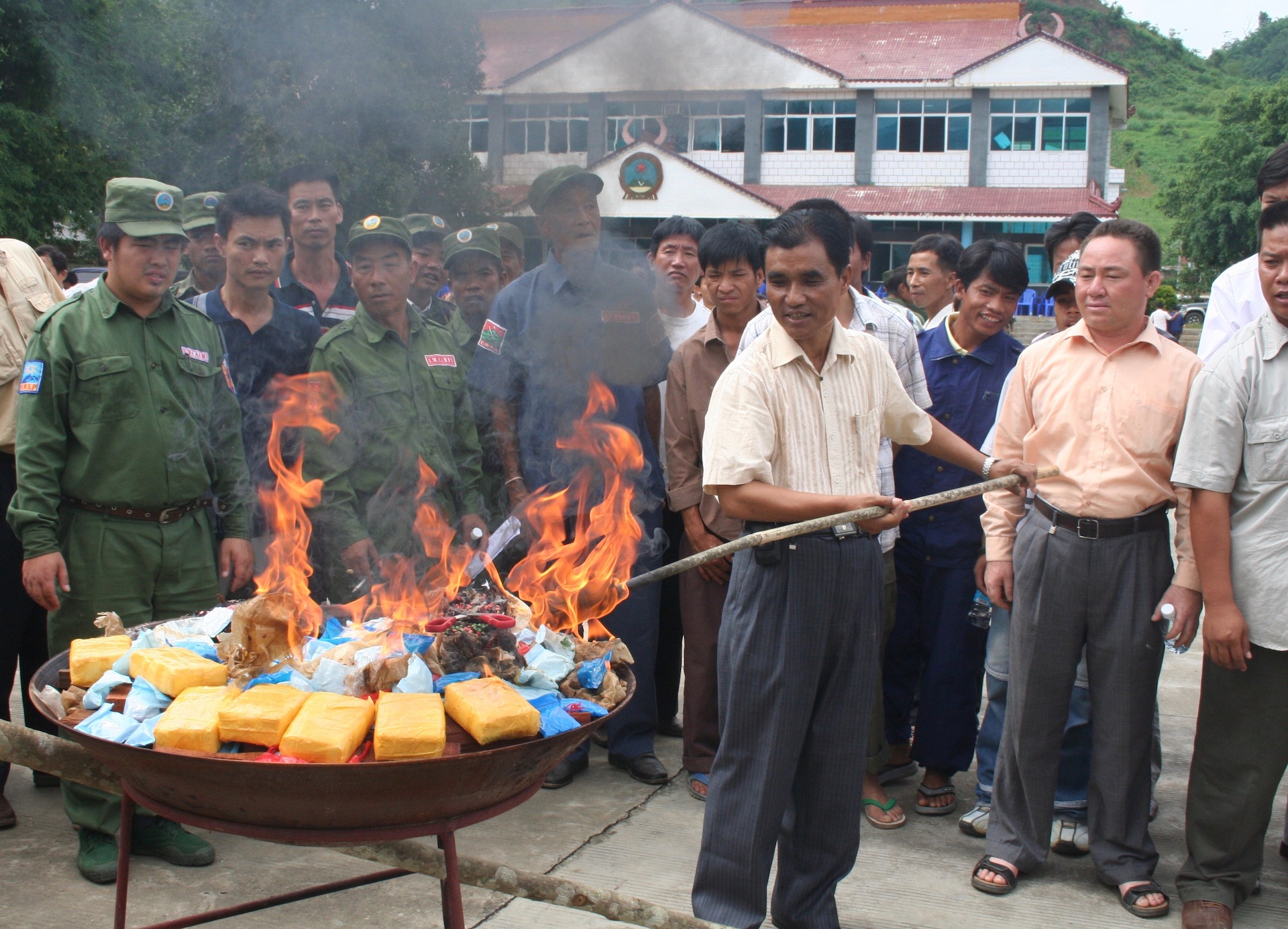|
|
|
The United Wa State Army is among the least-reported but controversial ethnic armed organisations in Myanmar. But despite many difficulties, it has grown during the past three decades from a breakaway movement at foundation to the most powerful ethnic force in the country. In this commentary, the local analyst Aik Long reflects on the recent death of Xiao Min Liang who played a key role in the UWSA’s modern-day evolution. A respected leader in the community, his passing comes at a critical time in both Shan State and the country in general.
These commentaries are intended to contribute to a broader understanding of the many challenges facing the country and its peoples.
See the complete list of all the Myanmar commentaries.
|
|
|
|
Xiao Min Liang
The Architect of UWSA Politics
A Myanmar Commentary by Aik Long*
|
|
 Xiao Min Liang at 2006 drug-burning ceremony, Pangkham / Photo credit: Aik Long
Xiao Min Liang at 2006 drug-burning ceremony, Pangkham / Photo credit: Aik Long
|
|
|
On 27 October, the Wa TV channel announced that the United Wa State Army (UWSA) Vice-Chairman, Xiao Min Liang, had passed away at his home in Pangkham that morning. He played a crucial role in guiding the UWSA’s political direction, and it is felt as a big loss for the Wa people, the UWSA movement and Myanmar as a whole.
The UWSA is the largest ethnic armed organisation (EAO) in Myanmar today, with an estimated 20,000 troops under military formation. It was established in 1989 and entered into a ceasefire agreement with the Myanmar military government during the same year. Thirty-four years later, the truce still holds, despite tensions and a number of crises.
Xiao Min Liang was one of the Wa commanders in the Communist Party of Burma (CPB) who took part in a mutiny and seized the CPB headquarters at Pangsang (later renamed as Pangkham) in eastern Shan State on 17 April 1989, forcing the elderly Burmese communist leaders to seek political asylum in neighbouring China. With nationalism spreading among the Kokang and other nationality peoples along the Yunnan border, the CPB has been essentially defunct since this time.
|
|
|
|
|
|
|
|